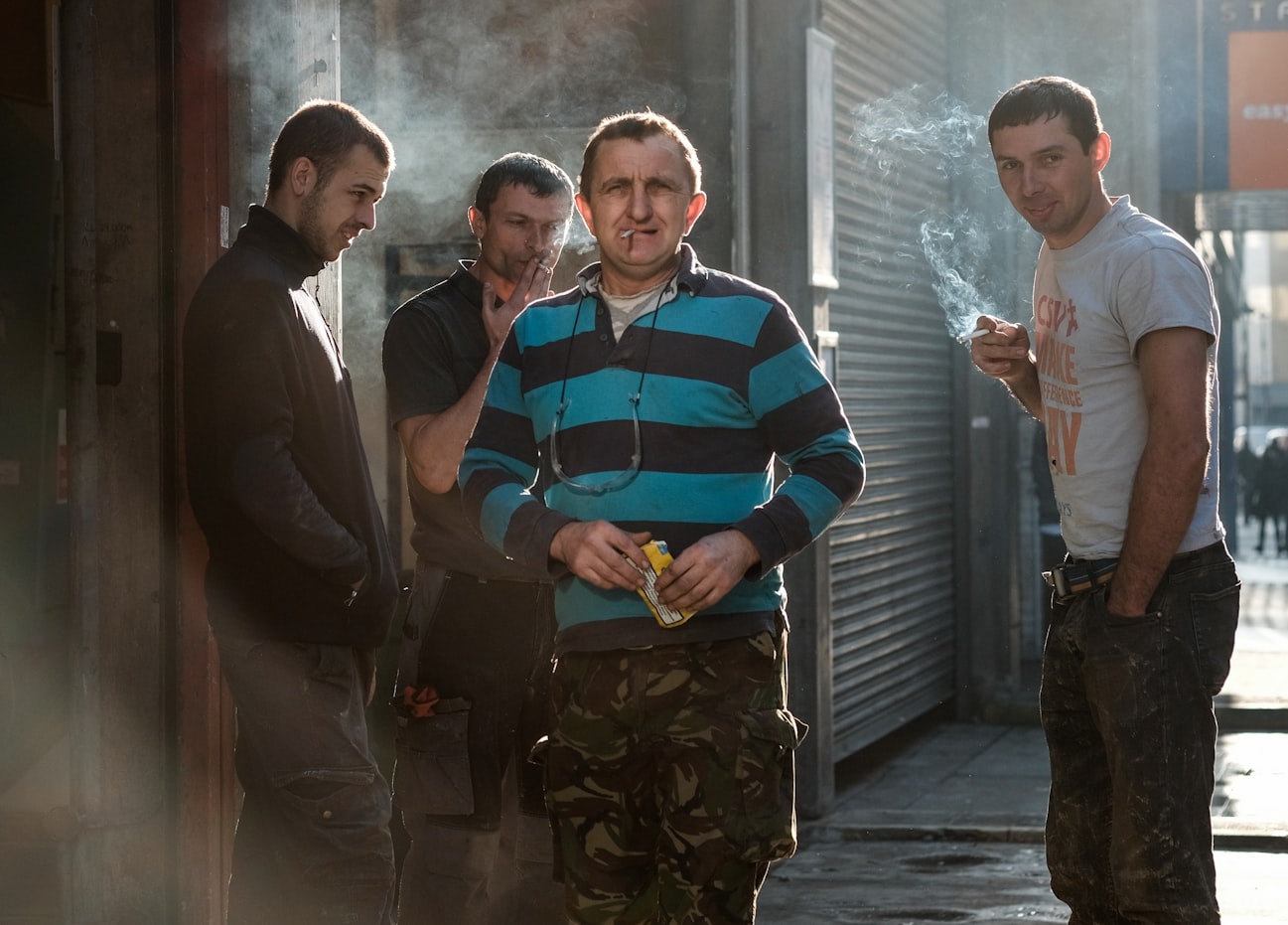We all know smoking is bad. Even smokers themselves know this fact. So what’s stopping them from kicking the addiction? Some say its the buzz, some do it out of habit, and some just want to keep the weight off.
Still, we all know that smoking is not a long-term solution. We’ve chosen to speak to these Malaysians who managed to successfully kick their smoking habit for good – and find out how they did it!

1. Nicotine replacement therapy (NRT)
This is one of the most popular methods among ex-smokers, especially those who can’t do it cold turkey. What’s NRT? Simply put, NRT is a method which provides low doses of nicotine to the user without the other harmful chemicals in a cigarette such as tar and carbon monoxide. This allows smokers to reduce their smoking until they’re able to quit completely.
In simpler terms, NRT helps minimise the craving and help deal with withdrawal symptoms.
NRT comes in the form of nicotine gum, nicotine inhaler, nicotine lozenge, nicotine nasal spray and nicotine patch. For the further information on the price as well as method of usage, one can read up more on the Health Ministry of Malaysia’s website as well as contact the relevant medical officers for further guidance.
Azli, who used to smoke at least 10 sticks a day, actually prefers the nicotine patch compared to gum. He says the gum has a bitter taste which he doesn’t like.
He explains that the nicotine patch releases the nicotine into the body slowly over the course of 12 hours. This reduces his urge to pick up a cigarette. However, he says it still takes willpower and motivation since it doesn’t eliminate the cravings completely.
Funnily enough, what made Azli quit altogether was the escalating prices of cigarettes. It became too expensive, and eventually he stopped smoking altogether.
2. Champix medicine
Ryan works in an advertising agency. The tight deadlines while being surrounded by colleagues who smoke eventually turned him into a smoker himself. Soon he found himself relying on nicotine to focus and control his stress levels.
A day before a big project’s deadline, some of his colleagues ran out of cigarettes, and asked for his instead. That was the final straw. He lost his patience with them, and felt that the habit wasn’t worth it. Not only was he paying for his addiction, but he was paying for his colleagues’ addictions as well. He hated how dependant they were on nicotine.
His brother-in-law, also a smoker, suggested he try Champix. It helps reduce craving and withdrawal symptoms when trying to quit smoking.
Champix is a tablet which reduces the activation of nicotine receptors in the brain. These receptors are what rewards the smoker when he or she inhales the nicotine from the cigarette. Once a smoker starts consuming Champix tablets however, the pleasure region of the brain will be desensitised to nicotine in the system. This makes smoking not pleasurable for the smoker anymore.
After taking the medicine for three months, Ryan finally kicked the habit for good. Now, when the pressures of work get to him, he drinks a cup of coffee instead. It’s much cheaper and healthier compared to smoking!

source: https://www. Labroots. Com/trending/immunology/5443/asthma-inhaler-isn-t-doing
3. Stop Smoking Clinic
Andy took up smoking for a very weird reason – to help with his asthma!
Just for your information, smoking can help alleviate asthmatic symptoms, but medical experts agree that the risks far outweighs the benefits. In fact, it can even make you less receptive to traditional asthma medication (which works far better!).
Andy said that it worked for him, to some extent. His condition improved slightly when he started smoking. However, his asthma was also the reason he eventually decided to quit.
When he went to the hospital for his asthma treatment, he noticed that there was a ‘Klinik Berhenti Merokok’ (Stop Smoking Clinic). He was curious and decided to find out more.
Apparently it’s a clinic for smokers. They provide medical check-ups, which lets you know the levels of carbon monoxide in your body. They also provide counselling and NRT treatment.
He decided it was worth a shot and asked to be referred.
After only four months out of a six-month program, he’s made huge progress. He’s hoping to completely quit smoking by the end of it.
4. Avoiding smokers group
David got into smoking due to peer pressure. When he was in college, he was more of a drinker and a clubber. However, when he started working at KLCC, his colleagues were smokers, which is how he developed the habit. When they went out for a break, he would join them.
Although he didn’t like smoking at first, it became a habit once he got closer to the group. He started spending close to RM500 per month on cigarettes alone.
Even with NRT and smoking medication, he still felt the pressure from his colleagues to join them. He made the difficult decision to take fewer breaks, and stop mixing with them to avoid temptation once and for all.
At first he struggled. He found it difficult to avoid them whenever they went out for a smoke-break. Eventually, to avoid the awkwardness, David came clean to them. He informed them about his decision to quit smoking.
While some of them teased him, there were a few who supported him and wished they had the willpower to do the same.
It’s been three months since David last smoked, but he thinks that’s still good progress!
5. Quit Smoking App
Devaraj used to smoke a lot in the past, but he’s managed to significantly cut down on his habit via NRT. He also finds using the ‘Quit Smoking’ app helpful, because it identifies triggers and lets him record logs which are useful for him.
For example, when he keys in the amount of money he used to smoke per day, the app helps calculate how much money he’s saved since he stopped. He can also record his daily routine, and by reviewing it, he can foresee potential pitfalls. This prevents him from relapsing.
Devaraj believes the app is useful when used alongside other primary treatments for smokers who are trying to quit.
Are you trying or have been trying to quit smoking? Which approaches have you tried? How well did it work? Let us know in the comments below!
More from Real Mental Health
“I Was Scared of Waking Up in Handcuffs,” shares Depressed M’sian on Repealed Law
In 2023, Malaysia repealed Section 309, a colonial-era law that made suicide attempts a crime. The change marked a shift …
‘Everyone Saw A Successful Student While I Was Crumbling,’ Shares 22 Year Old Student
This is a story of a 22 year old woman who shared her story as a Straight A’s student as …
5 Harmful Mental Health Myths Malaysians Still Believe
Let’s break down five of the most common myths Malaysians still believe, and why it’s time to let them go.















